Six in ten Americans (64%) prioritize Constitutional rights over protection
For many Americans, terrorism is defined by perpetrators, not actions. In the latest Economist/YouGov Poll most Americans believe a terrorist attack on U.S. soil in the next 12 months is not very likely (putting the odds of an attack at less than 50%, though very few say it’s less than 1%). They would prioritize the protection of individual rights for all Americans over terrorism protection which would limit Constitutional rights when the two are placed in opposition to each other.
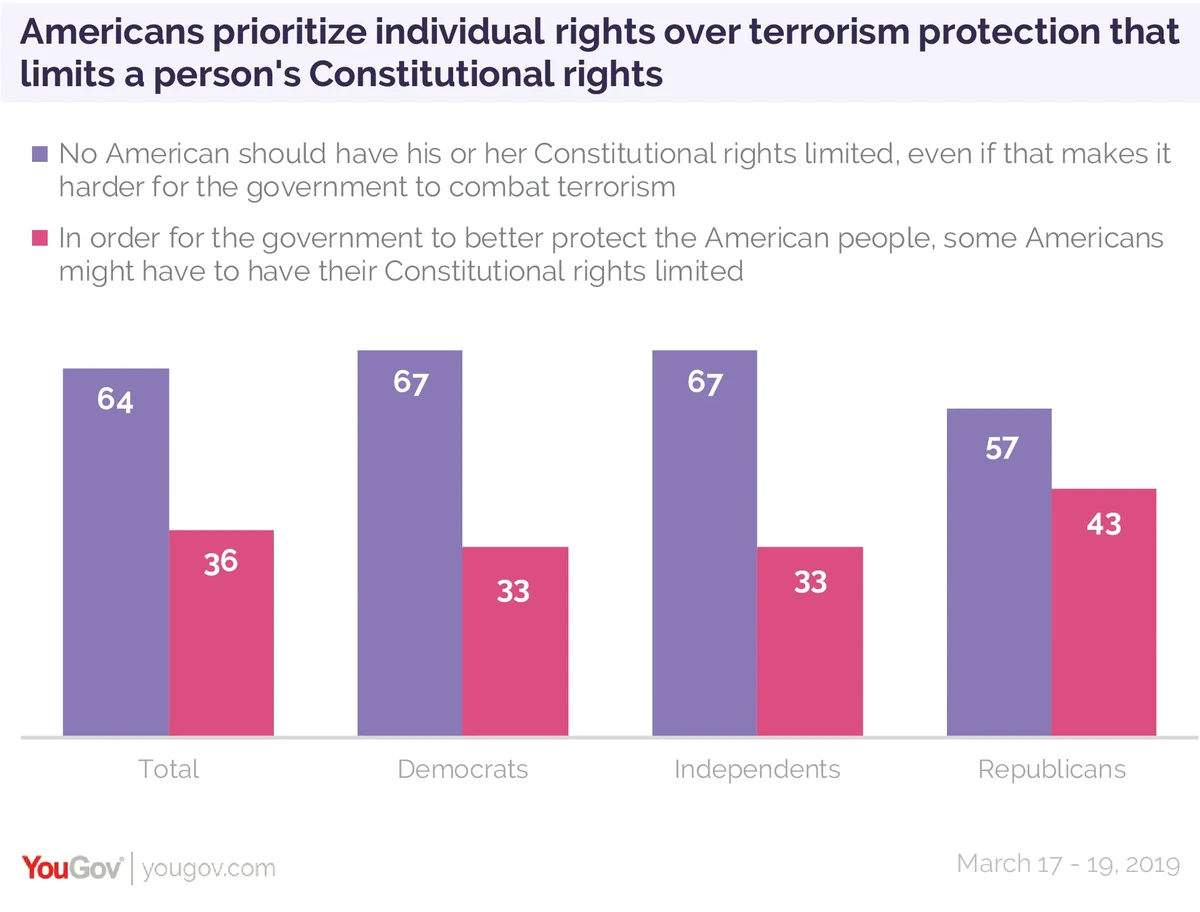
That doesn’t mean that Americans don’t want to be protected from terrorism. A majority of adults view terrorism as a very important issue to them personally. Republicans (64%) are more likely than Democrats (51%) to think this, which may help explain why Republicans are slightly more willing than Democrats to believe that some Americans might have to lose their Constitutional rights to better protect the country. Both parties prioritize the protection of civil rights and liberties over protection from terrorist attacks, but for Democrats that margin is 71% to 29%, for Republicans, it is 61% to 39%.
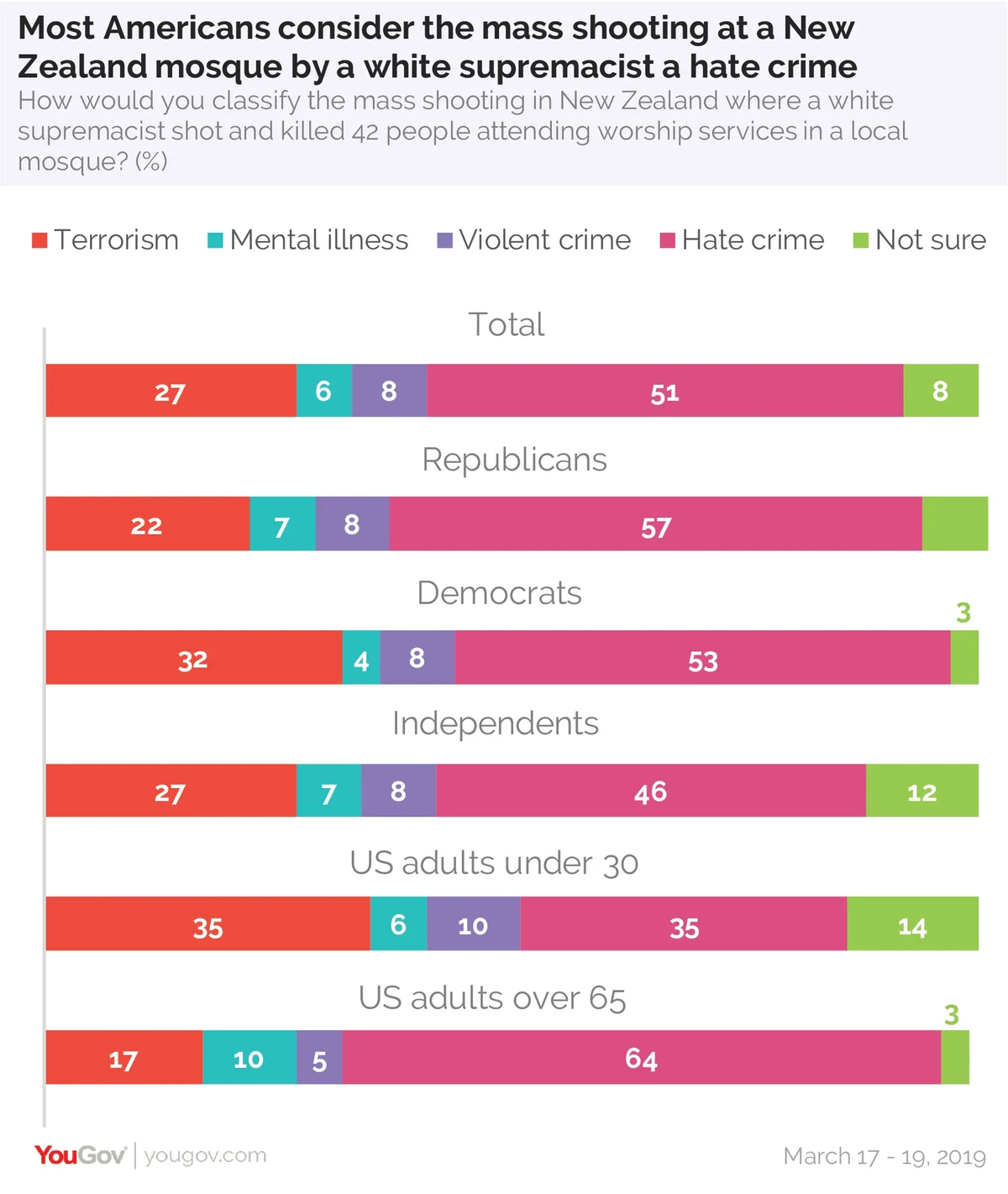
One thing that may set Americans apart from those elsewhere is the American willingness to label violent acts perpetrated by Muslims as terrorism, but their unwillingness to use that term to categorize other violent acts committed. Many choose to label some of these actions as “hate crimes,” but not terrorism.
The most recent example is the killing of 50 Muslims at prayer in two mosques by a white nationalist Australian in Christchurch, New Zealand. More than half call this a hate crime, not terrorism.
The Prime Minister of New Zealand, Jacinda Ardern, immediately labeled Friday’s attack as terrorism. On Tuesday, she said she would not name him, calling him a “terrorist, …a criminal, …an extremist.” But only one in four respondents in the Economist/YouGov poll chose that term to describe the event. Democrats are somewhat more likely than Republicans to use the term, while younger adults are also more likely than senior citizens to do so.
In general, acts perpetrated on minority groups are described as hate crimes, while those that involve an identified Muslim shooter are thought of as terrorism. The shootings at a Pennsylvania synagogue, the white separatist murders of nine African-Americans at a church in Charleston, South Carolina, and the automobile killing of Heather Heyer, who was demonstrating against the “Unite the Right” rally in part called to protest the removal of a statue of Confederate General Robert E. Lee in Charlottesville, Virginia, are called hate crimes; the Muslim Army psychiatrist who shot 13 people in Texas, and the Muslim driver who drove his truck into bicyclists in New York City are labeled as having committed acts of terrorism.
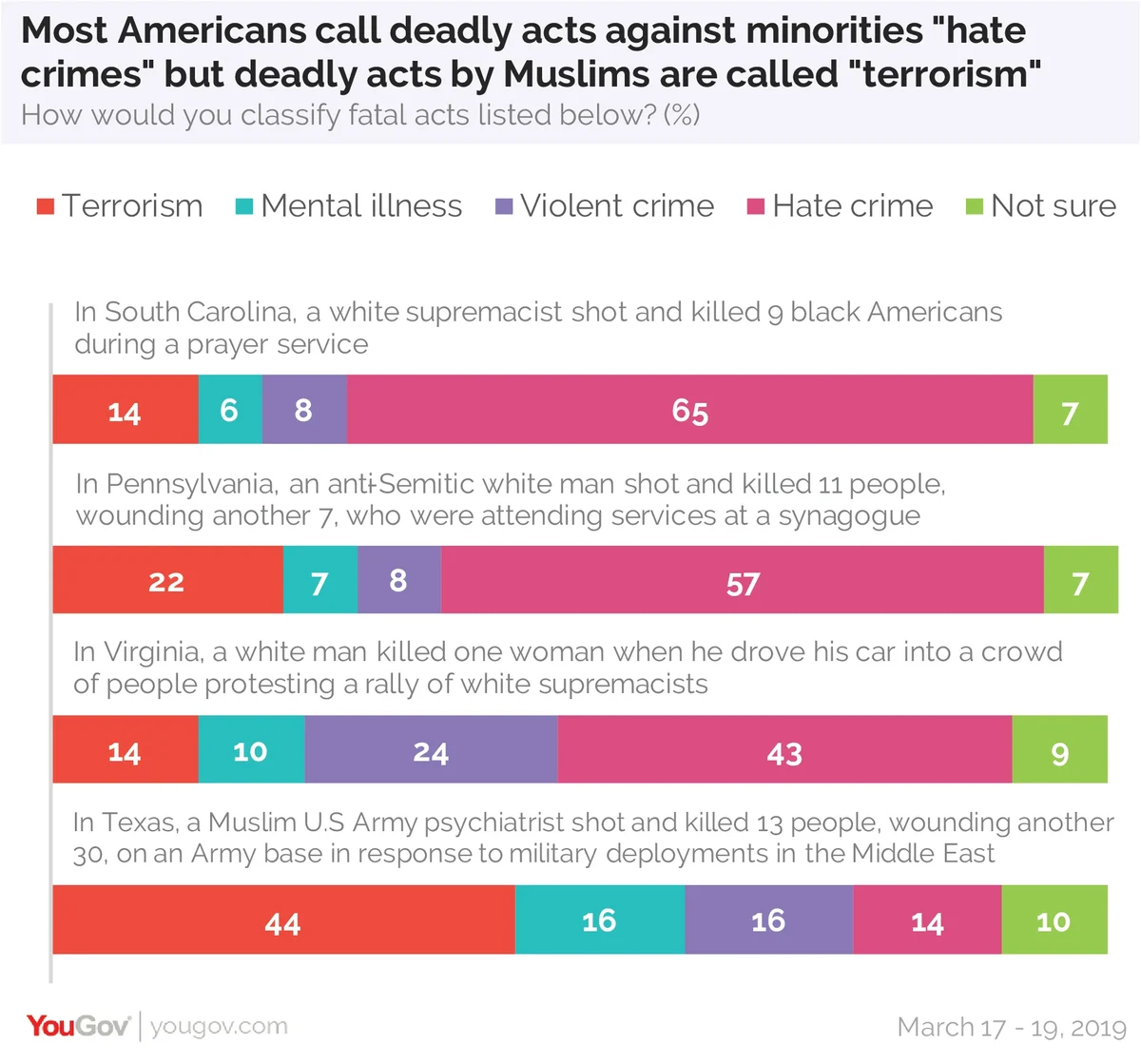
There are other violent acts asked about in this poll, like the mass suicides in Guyana and the commercial pilot who intentionally flew his plane into the ground, that Americans tend to see as manifestations of mental illness, while others that don’t seem directed at specific groups of people are described simply as “violent crime.”
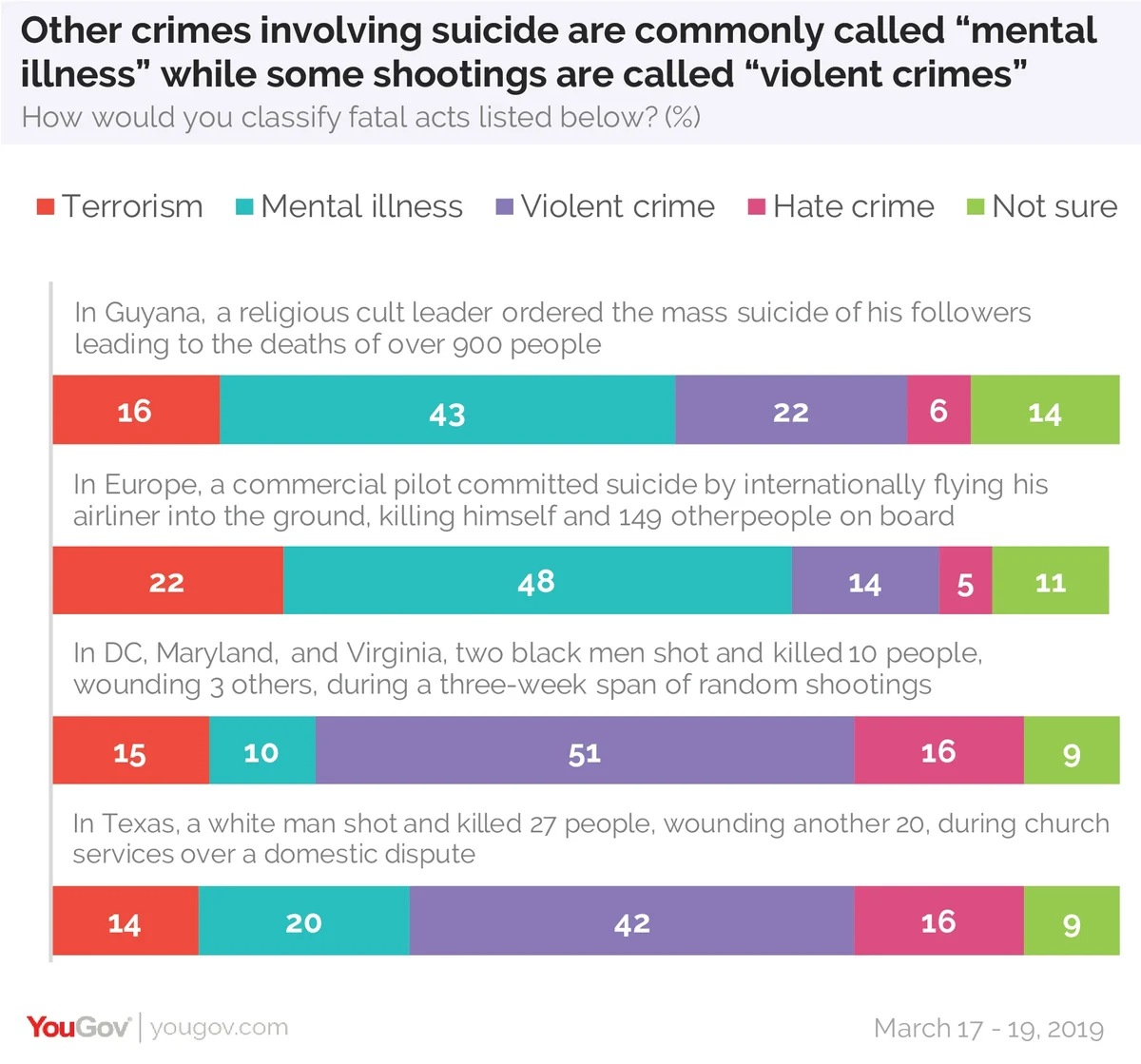
When it comes to the two crimes by Muslims, Republicans, much more than Democrats, call them acts of terrorism. In the case of the Texas Army officer, 39% of Democrats and 54% of Republicans called that terrorism. For the Muslim truck driver, 44% of Democrats and 57% of Republicans said that was terrorism.
The New Zealand Prime Minister almost immediately said the country’s response to the mosque shootings would be to review her country’s gun laws. Americans agree. By nearly two to one, they approve of New Zealand politicians moving to make the country’ gun laws more strict. There are some exceptions. Republicans have consistently opposed changing gun laws, and in this poll those who own guns also oppose changes in New Zealand laws.
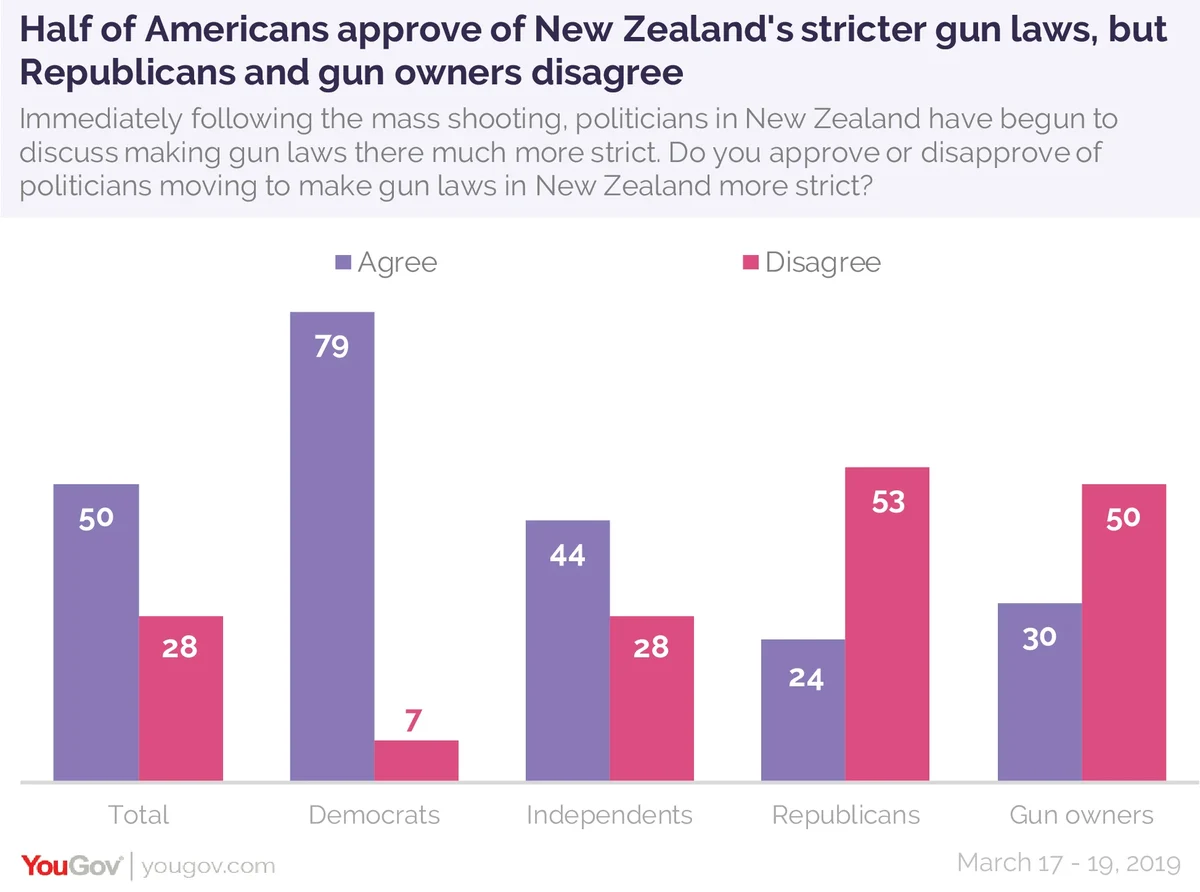
Those responses mirror the ones given when the public is asked about American gun laws. Over half (52%) in this poll would make U.S. laws stricter. But that percentage jumps to 81% among Democrats and drops to 26% for Republicans. A third of gun owners would make U.S. laws stricter. Relatively few in any group would make them less strict. Instead, they prefer no changes.
However, there are some limits on guns that are acceptable to most Republicans and most gun owners. Majorities in each group support letting families and law enforcement petition courts to suspend someone’s access to firearms if there is evidence such individuals are threatening harm to themselves or others. Half would raise the minimum age for gun purchase to 21. Gun owners, like the rest of the public, also oppose permitting individuals to use a 3-D printer to make their own guns.
Related: Don’t favor the wealthy, Americans tell colleges
See the full toplines and tables results here.
Image: Getty








